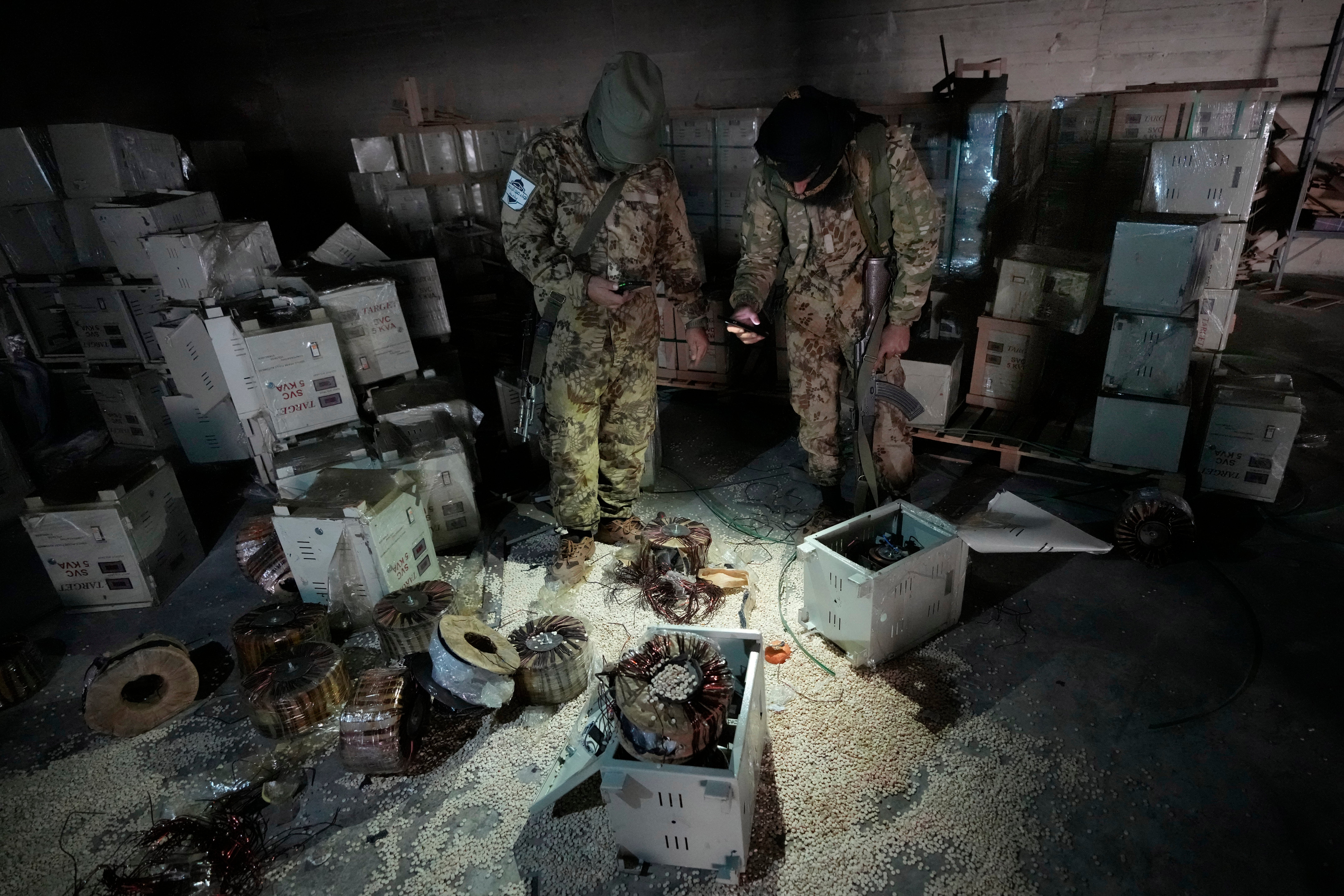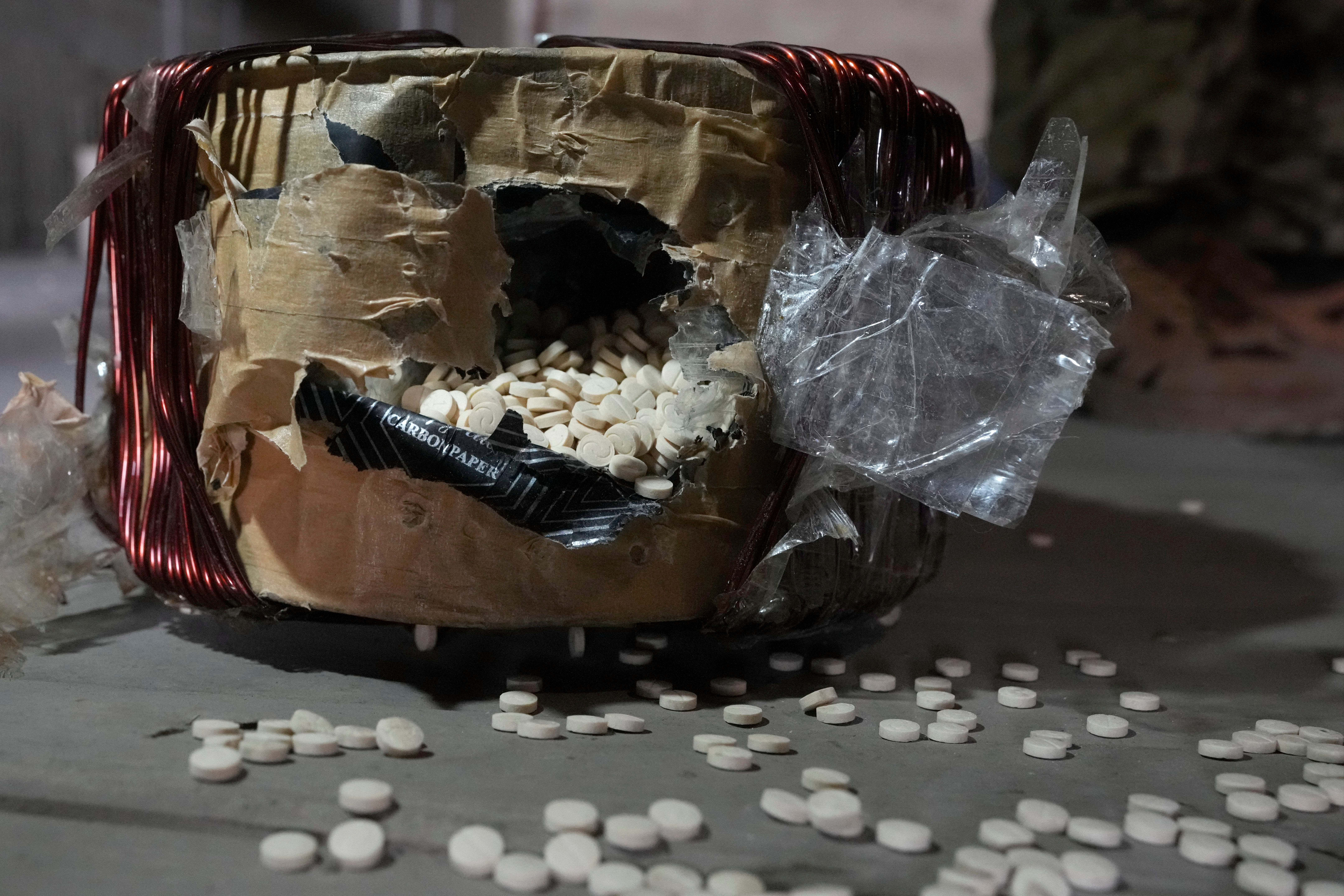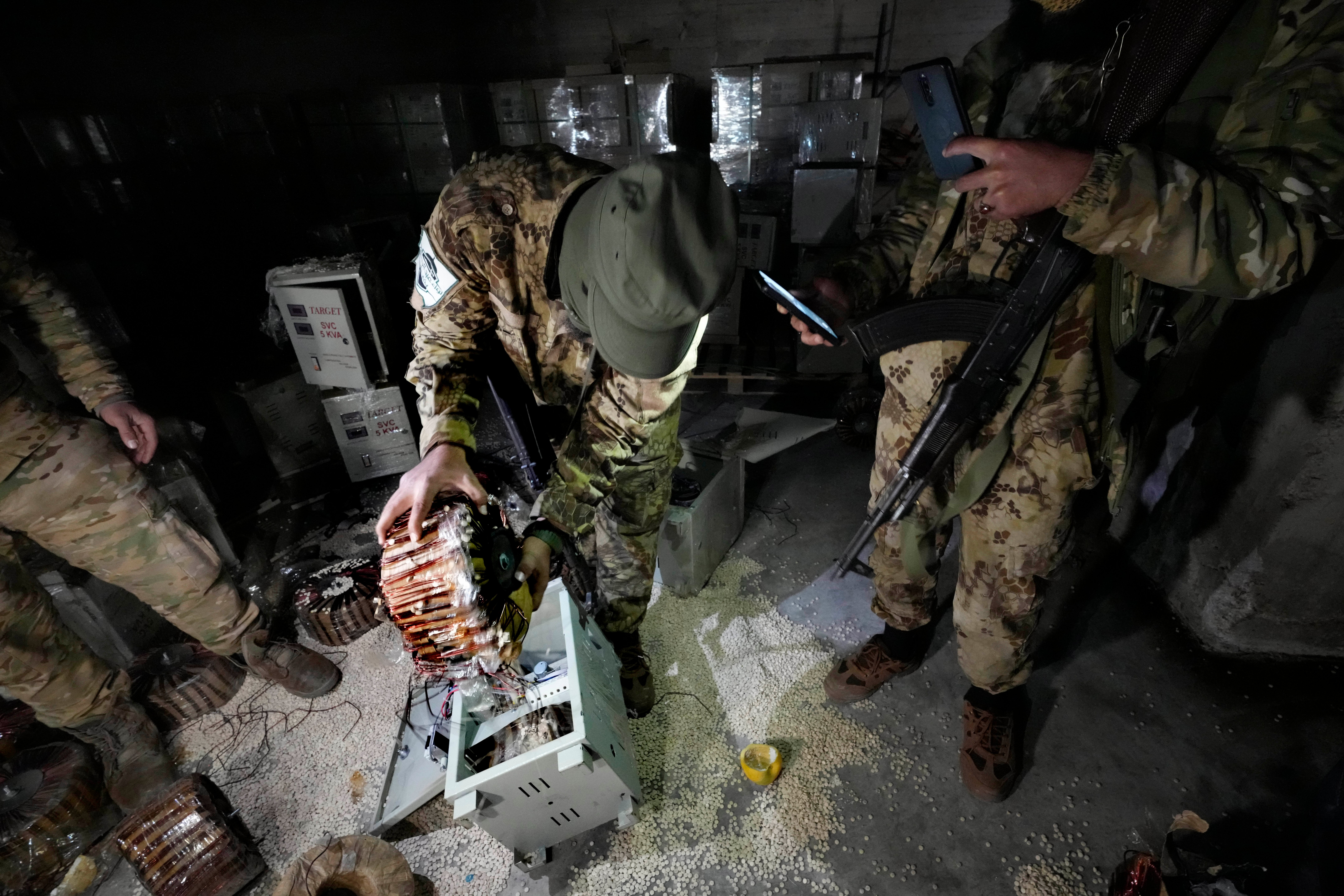Inside Assad’s Captagon drug-smuggling empire and how it funded brutal Syrian regime
The export of illegal drug captagon financially fuelled Bashar al-Assad’s Syrian regime for years

Your support helps us to tell the story
From reproductive rights to climate change to Big Tech, The Independent is on the ground when the story is developing. Whether it's investigating the financials of Elon Musk's pro-Trump PAC or producing our latest documentary, 'The A Word', which shines a light on the American women fighting for reproductive rights, we know how important it is to parse out the facts from the messaging.
At such a critical moment in US history, we need reporters on the ground. Your donation allows us to keep sending journalists to speak to both sides of the story.
The Independent is trusted by Americans across the entire political spectrum. And unlike many other quality news outlets, we choose not to lock Americans out of our reporting and analysis with paywalls. We believe quality journalism should be available to everyone, paid for by those who can afford it.
Your support makes all the difference.As the dust settles on the fragments of Bashar al-Assad’s collapsed Syrian dictatorship, the truth about a mass drug empire believed to have brought huge profits to the former regime is being uncovered among the ashes.
The Assad family was long accused by Washington and other international actors of profiteering from the production and sale of captagon, an addictive amphetamine-like stimulant which swept across the Middle East and became known as “poor-man’s cocaine”.
The regime consistently denied links to the global captagon trade, which experts say is worth billions of dollars a year. A stimulant first produced in 1960s Germany to help treat attention deficit disorders and narcolepsy has swept the Middle East across the past decade.
It was discontinued but an illicit version of the drug known as "poor man's cocaine" continued to be produced in eastern Europe and later in the Arab world, becoming prominent in the conflict that erupted in Syria following anti-government protests in 2011.
It staves off sleep and hunger. It has been banned in many countries including the U.S. and can have harmful side effects. Its prevalence has led to growing drug abuse in Gulf Arab states.

Now that the Assad family has been ousted following a lightning insurgency led by former al-Qaeda affiliate Hayat Tahrir al-Sham (HTS), the scale of the trade in captagon is becoming clear.
In the city of Douma, 10 kilometres northeast of Syria’s capital of Damascus, warehouses storing thousands of captagon pills have been unearthed by the rebels scouring areas once controlled by the Assad regime and its allies. The warehouse, according to experts, may be one of the biggest captagon labs ever seen.
Pills were found hidden in furniture, fruit, decorative pebbles and voltage stabilisers. Many had a double crescent logo stamped on them, marking them as captagon pills.

Inside the warehouse, a pill-press was found along with dozens of barrels holding the various chemicals required to produce captagon. The chemicals came from various countries including the UK, China and India.
The leadership of Syria made an annual profit from captagon of around $2.4 billion, according to Caroline Rose, the director of the New-York-based New Lines Institute Captagon Trade Project. An investigation by AFP news agency found that captagon had become Syria’s largest export, dwarfing its legal businesses.
Ms Rose, whose organisation tracks all publicly recorded captagon seizures and lab raids, said the site appeared to be one of the biggest captagon labs that has been found.
"It’s very possible that it's the biggest one that existed in regime-held Syria," she said.

Last year, the US Treasury sanctioned a number of Syrians closely associated with the Assad regime for their alleged involvement captagon trade.
“The Syrian regime and its allies have increasingly embraced the production and trafficking of captagon to generate hard currency, estimated by some to be in the billions of dollars,” the Treasury said.
Among those sanctioned were two cousins of Bashar al-Assad and Khalid Qaddour, a close associate of Maher al-Assad, brother of Bashar, who was described as a “key drug producer and facilitator” of captagon production in Syria.
In the days since Assad's fall, rebel fighters say they have found several sites across the country where the drug was produced and prepared for export.
They have sometimes set fire to the pills or poured them down drains, according to videos shared online by accounts affiliated with them.
Ms Rose noted that her organisation tracked all publicly recorded captagon seizures and lab raids.
"Up until the regime fell, there was not a single incident of a laboratory seizure on the database in regime-held territories," she said.
Speaking in front of a crowd of supporters inside the Umayyad Mosque in Damascus, rebel leader Abu Mohammad al-Golani told supporters according to AFP: “Syria has become the biggest producer of Captagon on Earth, and today, Syria is going to be purified by the grace of God.”
Reuters contributed to this report
Join our commenting forum
Join thought-provoking conversations, follow other Independent readers and see their replies
Comments